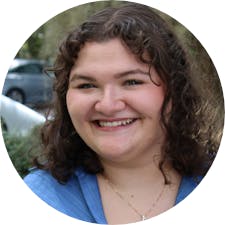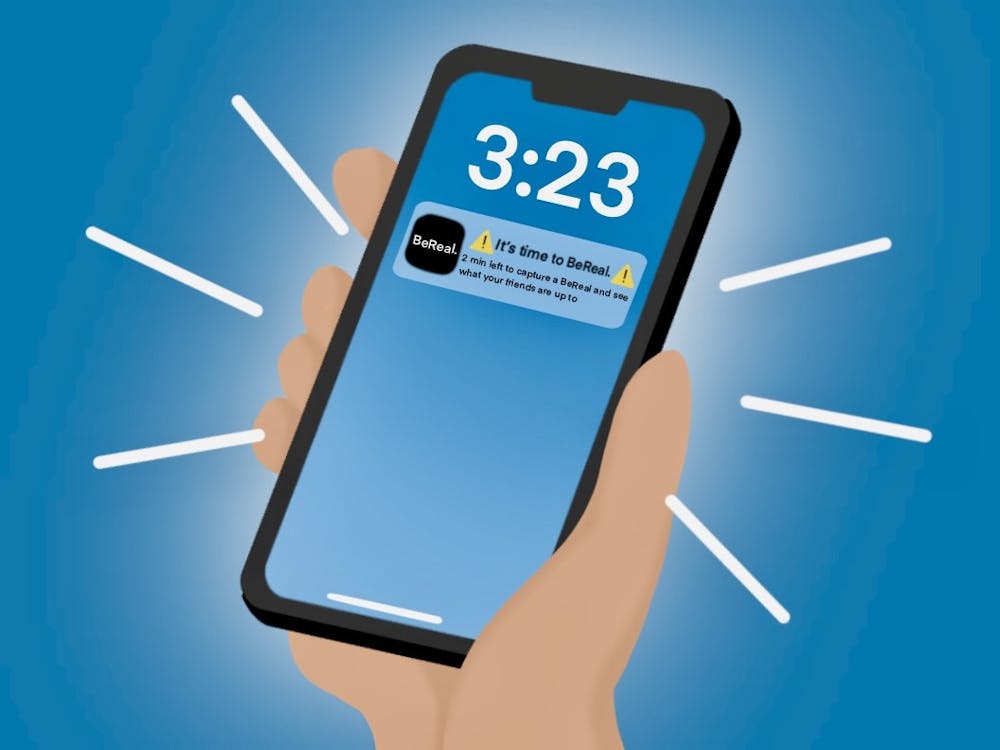In the span of two minutes, UF students across Gainesville ask themselves one of the most philosophical questions any 20-something has ever considered: What does it mean to ‘be real’?
Usually, it’s a selfie in bed.
BeReal is a social media app where users have two minutes to snap an unfiltered front-and-back-facing photo once a day. All 10 million of its daily active users receive the BeReal notification at the same time, but the alert is sent at different times every day — ideally offering a candid glimpse into the average person’s life.
The app prides itself on its authenticity, but some UF faculty and students aren’t confident that goal is possible in a developed, digitalized world.
Benjamin Johnson, a UF advertising professor, said he believes authenticity is important among BeReal’s young demographic, but it’s often difficult to define.
This disparity can be explained by the concept of social comparison, or how people perceive their own lives in reference to those of others. As social media allows individuals to interact with increased numbers of people online, social comparison also changes, he said.
“On social media, people are very careful about presenting their best selves, so I might think that my friend dresses poorly or doesn't have [a] nice hairstyle or he's awkward,” Johnson said. “But online, maybe he can edit that and look much more charming than he really is.”
But, BeReal has features to counteract that. There are no filters on the app and you only have two minutes to post one photo. It’s also more common to follow only a handful of close friends. In fact, under its description on the Apple app store reads a warning: “BeReal doesn't care if you have millions of followers or if you're verified.”
A smaller social network, like those on BeReal, can make social comparison more accurate, Johnson said.
“It might not be people assuming that this acquaintance is an amazing person when they're not,” he said.
Taimoor Nawaz, a 19-year-old UF economics sophomore, said he once posted his BeReal while on the toilet.
“For me, it’s just do it as soon as possible,” he said.
Despite BeReal’s premise of authenticity, it’s still possible to remove and retake photos — although users can view how many times someone retakes their photo. Users can also upload their BeReals late, allowing people to intentionally delay posting until the perfect photo opportunity arrives.
BeReal was founded by French entrepreneur Alexis Barreyat, who launched the app in 2020. It didn’t take off until 2022, reaching 56 million downloads this year.
Lauren Gabbe, an 18-year-old UF political science freshman, said she joined BeReal in August after noticing the app gaining popularity. She thought BeReal sounded similar to other one-second-a-day apps, but she loves it nonetheless, she said.
“It's fun to see exactly where everyone is, especially if you have friends that don't live in the same place as you,” she said.
As BeReal’s user base grows, other social media platforms have created new features to mimic the app.
On Sept. 15, TikTok announced TikTok Now, where users take a front-and-back-facing photo or video after getting a notification that reads “Time to Now.” Instagram is currently testing IG Candid, where users share a photo at a different time every day.
Still, some UF students were hesitant about BeReal’s originality when they first downloaded the app.
Coral Rodriguez-Lipstein, a 20-year-old public relations junior, said BeReal sounded similar to Poparazzi, an app where users have their friends post to their profiles, similar to how paparazzi snap candids of celebrities.
Andrew Selepak, a UF professor who specializes in social media, said BeReal asks its young users to change the way they use social media.
“It's saying, ‘Hey, don't post when you are doing something interesting — when you're on vacation, when you're having fun — but post the mundane moments of your life,’” he said.
But for many students — Gabbe and Rodriguez-Lipstein included — it’s difficult to resist temptation.
Gabbe likes the app better when people post on time, she said. However, she admitted to posting late to photograph the Gator football games against the Utah Utes and Kentucky Wildcats.
Rodriguez-Lipstein said she used the app while studying abroad in Barcelona over the summer, only connecting to Wi-Fi when her BeReal could capture something cool.
“The concept behind the app is to show one's authentic self, but what has happened — what has occurred — is that people are not doing that,” Selepak said. “It's almost a Pavlovian thing of needing to be prepared for the notification of ‘It's time to post your BeReal.’”
Contact Lauren at lbrensel@alligator.org. Follow her on Twitter @LaurenBrensel

Lauren Brensel is a journalism sophomore and a metro reporter for The Alligator. In her free time, she's found going on mental health walks, being silly with friends, hiding from the public and reminding those around her that they did this song on Glee.






